
We reviewed over 200 businesses worldwide*, and have identified over 165 businesses operating in the care economy across Latin America, Sub-Saharan Africa and Asia who met the following 4 criteria:
1. Geography focus: operating in project target countries.
2. Care economy impact: business activities recognize, reduce, reward or redistribute care work.
3. Proof of concept: care economy activities at least at the launch stage (none of the businesses are at concept stage).
4. Market-based intervention: already or planning to be financially profitable or to generate income in the medium term.
Out of the mapping we selected 60 businesses to conduct a full profile and showcase potential investment opportunities. These profiles have been created from information and data provided by the business itself. Use the filter on the left to access the businesses profiled.
* Disclaimer: The data presented in the business mapping and profiles is based on information provided by the businesses and has not been independently verified
1. Geography focus: operating in project target countries.
2. Care economy impact: business activities recognize, reduce, reward or redistribute care work.
3. Proof of concept: care economy activities at least at the launch stage (none of the businesses are at concept stage).
4. Market-based intervention: already or planning to be financially profitable or to generate income in the medium term.
Out of the mapping we selected 60 businesses to conduct a full profile and showcase potential investment opportunities. These profiles have been created from information and data provided by the business itself. Use the filter on the left to access the businesses profiled.
* Disclaimer: The data presented in the business mapping and profiles is based on information provided by the businesses and has not been independently verified
Filter Your Results
ATEC
Website: www.atecbio.com
Headquarters: Bangladesh
Country of Operations: Bangladesh, Cambodia
Women owned / led: Information not available

About the organization: ATEC Biodigesters International (ATEC) is a for-profit entity that provides sustainable, affordable and accessible clean cooking products for base of the pyramid households in Bangladesh and Cambodia. It has integrated a pay-as-you-go (“PAYGO”) consumer finance model with the household biodigesters, allowing rural farmers to easily access a technology that produces biogas as a clean cooking solution, as well as sustainable, organic fertilizer for agriculture. For women and girls, the entity’s product reduces the drudgery associated with accessing firewood for cooking. It also has positive impacts on the environment and health of women.
Stage of Growth: Mass roll-out/Expansion
Types of Services: Labour saving solutions
Activities in the care economy: Provision of affordable time and labour saving technology and products (e.g. product that makes washing
Pathway to impact: Reduce
AYAT Care
Website: ayatcare.com
Headquarters: Bangladesh
Country of Operations: Bangladesh
Women owned / led: Founded by at least one woman, At least 30% women in senior leadership positions
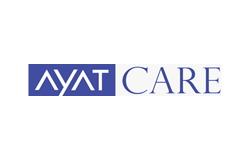
About the organization: AYAT Care provides personnel for care services which are tailored to the needs of the care receiver and includes health monitoring, mental health support and medical advice, in addition to traditional care for children and the elderly. It makes professional care services available to its customers by providing training for its care-givers. It provides employment opportunities to mostly female youth, who have dropped out from school, while serving customers who find it difficult to find trained and dependable caregivers. Although profit oriented, AYAT care is not profitable yet. It plans to become profitable in the next 3 years.
Stage of Growth: Small scale roll-out/Early stage
Types of Services: Child-care (Ages 6 and above), Elderly-care (Ages 60 and above), Care for persons with special needs (disabled / differently abled persons), Care for people with illnesses
Activities in the care economy: Provision of technology & services that train/upskill domestic & care workers
Pathway to impact: Recognize, Reward, Redistribute
BURN Manufacturing
Website: burnstoves.com
Headquarters: Kenya
Country of Operations: Ethiopia, Ghana, Kenya, Nigeria, Philippines, Senegal, South Africa, Tanzania, Uganda, Vietnam, Zambia, Somaliland, Somalia, Tanzania, DRC, South Sudan, Puntland, Sierra Leone, Burkina Faso, Cambodia, Rwanda, Burundi, Australia, Zimbabwe, Mozambique, Canada, Germany, Ivory Coast, India, Thailand, Malawi
Women owned / led: At least 30% of women in board of directors
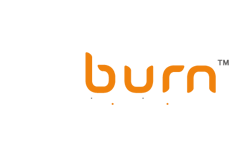
About the organization: BURN is a for-profit company that manufactures affordable clean cookstoves for households in sub-Saharan Africa. To date, BURN has sold over 1.2 million stoves. BURN’s cookstoves save money, fuel and time for its customers and help reduce harmful indoor smoke emissions which can cause significant health problems. The company’s products are instrumental in reducing the burden of collecting firewood, which typically falls on women, and potentially exposes them to risk of physical and sexual violence.
Stage of Growth: Mass roll-out/Expansion
Types of Services: Labour saving solutions
Activities in the care economy: Provision of affordable time and labour saving technology and products
Pathway to impact: Reduce
Eau et Vie
Website: www.eauetvie.fr
Headquarters: France
Country of Operations: Bangladesh, Philippines
Women owned / led: Founded by at least one woman, At least 30% women in senior leadership positions, At least 30% of women in board of directors

About the organization: Eau et Vie is a non-profit that develops water networks in slum areas to provide affordable and sustainable tap water at home. The organization is able to serve tap water in locations where operators of municipal systems are unable to reach. This enables time savings for women and reduces drudgery in accessing water from inconvenient locations. Furthermore, it not only promotes urban inclusion but also has impacts on aspects such as hygiene (personal and menstrual), fire-fighting, waste management and sanitation.
Stage of Growth: Small scale roll-out/Early stage
Types of Services: Domestic services, Labour saving solutions
Activities in the care economy: Provision of technology, services & policies/practice that improve conditions for domestic & care worker
Pathway to impact: Recognize, Reduce
Folia Water
Website: www.foliawater.com
Headquarters: United States of America
Country of Operations: Bangladesh
Women owned / led: Founded by at least one woman
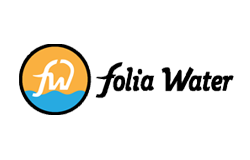
About the organization: Folia Water is a for-profit company. It provides affordable and effective water filtration systems to communities that lack access to safe and potable water. Its patented silver-infused filter papers kill bacteria and viruses and filter out dirt and larger parasites. Its water filteration systems reduce the drudgery in collecting water from inconvenient places, especially for women. Other associated impacts include reduced negative health impacts from unsafe water and associated time and capital costs for low-income households.
Stage of Growth: Small scale roll-out/Early stage
Types of Services: Domestic services, Labour saving solutions
Activities in the care economy: Provision of affordable time and labour saving technology and products
Pathway to impact: Reduce
Hadas
Website: www.hadas.pe
Headquarters: Peru
Country of Operations: Peru
Women owned / led: Founded by at least one woman, At least 51% owned by women, At least 30% women in senior leadership positions

About the organization: Hadas is a digital platform that allows its users to request domestic services for houses or offices from any device. Cleaning services are performed by trained and experienced keepers and cleaning professionals. Hadas has an innovative recruitment process, which is totally automated and takes around 48 hours to be completed. They also provide continuing education to all their employees. Hada´s mission is to innovate and reward hourly cleaning services with decent work opportunities powered by the use of technology.
Stage of Growth: Mass roll-out/Expansion
Types of Services: Domestic services
Activities in the care economy: Provision of technology & services that train/upskill domestic & care workers (e.g. technology that links employers to domestic/care workers), Provision of technology, services & policies/practice that improve condition for domestic & care worker (e.g. apps that calculate decent remuneration), Provision of affordable time and labour saving technology and products (e.g. product that makes washing, cooking more efficient)
Pathway to impact: Redistribute, Reduce, Reward
HandyMama.co Ltd
Website: handymama.co
Headquarters: Bangladesh
Country of Operations: Bangladesh
Women owned / led: None

About the organization: HandyMama is an on-demand home services platform in Bangladesh. This for-profit company connects its customers with trained and verified service providers, such as professional cleaners, maintenance people, packers and movers. The company’s workforce includes 40% women and it intends to launch other services such as cooking, cleaning and laundry services soon. HandyMama is able to reduce the burden of care work by providing affordable and standardized domestic services.
Stage of Growth: Mass roll-out/Expansion
Types of Services: Domestic services, Labour saving solutions
Activities in the care economy: Provision of technology, services & policies/practice that improve conditions for domestic & care worker
Pathway to impact: Recognize, Reward, Redistribute
HelloTask
Website: hellotask.app
Headquarters: Singapore
Country of Operations: Bangladesh
Women owned / led: None

About the organization: HelloTask is a for-profit online platform that connects domestic workers to potential employers in Bangladesh. In developing countries, most care workers are not smartphone users, which has excluded them from digital opportunities. The company has built a technology that connects any mobile phone user to employers in real-time. Through its model, HelloTask improves access to opportunities for domestic workers.
Stage of Growth: Small scale roll-out/Early stage
Types of Services: Domestic services
Activities in the care economy: Provision of technology & services that train/upskill domestic & care workers
Pathway to impact: Recognize, Reward, Redistribute
I.A.B. – Institut Academic of Babies
Website: www.iab-afrique.com
Headquarters: Senegal
Country of Operations: Senegal
Women owned / led: Founded by at least one woman, At least 51% owned by women, At least 30% women in senior leadership positions, At least 30% of women in board of directors
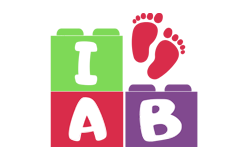
About the organization: I.A.B is a social business that trains care workers in early childhood care. In Senegal, day care centers are not regulated and there is no school that is specifically focused on training related early childhood. As a result, children are less likely to go to nurseries. Through it’s training programs I.A.B has increased the skills of childcare workers, resulting in higher incomes for these workers. I.A.B’s impact includes improved health conditions among toddlers, decent work opportunties for care workers, and increased productivity of parents who are assured that the care and development of their children is in expert hands.
Stage of Growth: Mass roll-out/Expansion
Types of Services: Infant-care (children younger than 1-year), Child-care (Ages 1 to 5), Domestic services
Activities in the care economy: Provision of technology & services that train/upskill domestic & care workers
Pathway to impact: Recognize, Reward
Instituto de Promoción y Formación de Trabajadoras del Hogar IPROFOTH
Website: facebook.com/IprofothPeru
Headquarters: Peru
Country of Operations: Peru
Women owned / led: Founded by at least one woman, At least 51% owned by women, At least 30% women in senior leadership positions, At least 30% of women in board of directors
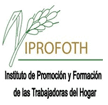
About the organization: IPROFOTH is a Peruvian organization made up and directed 100% by women domestic workers. They offer nursery services for caring for and stimulating children of care workers. The most vulnerable care and domestic workers, mostly migrant women, receive shelter services, training, job placement guidance, and labor rights protection. IPROFOTH’s main challenge is to raise awareness in the recognition and appreciation of the contribution made by women in the care economy. They seek to improve the quality of life of domestic workers, empowering them via good compensations, resilience strategies, and recognition of their contribution to the care economy. Iprofoth’s political action and articulation with civil society pushed the ratification of the International Labor Office’s Convention 189 and the approval of a new law for domestic workers in Peru.
Stage of Growth: Small scale roll-out/Early stage
Types of Services: Child-care (Ages 1 to 5), Child-care (Ages 6 and above), Domestic services
Activities in the care economy: Provision of technology & services that train/upskill domestic & care workers (e.g. technology that links employers to domestic/care workers), Provision of technology, services & policies/practice that improve condition for domestic & care worker (e.g. apps that calculate decent remuneration), Provision of affordable services that provide care & domestic work (e.g. affordable daycare services in rural areas), Awareness raising on the care economy through marketing, information campaigns & programmes that raise awareness & increase motivation
Pathway to impact: #N/A
Phulki
Website: www.phulkibd.org
Headquarters: Bangladesh
Country of Operations: Bangladesh
Women owned / led: Founded by at least one woman, At least 51% owned by women, At least 30% women in senior leadership positions, At least 30% of women in board of directors
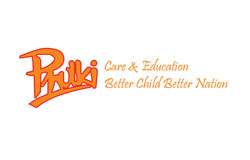
About the organization: Phulki is the pioneer in establishing early childhood development programs in Bangladesh. Phulki provides various training on health issues, woman rights, and vocational trainings such as caregiver training, supervision training and others, to increase women’s financial stability. It has setup childcare facilities in the workplace for women that are employed in garment factories in Bangladesh. Phulki also works with domestic house helpers building their capacity.
Stage of Growth: Established/Mature
Types of Services: Infant-care (children younger than 1-year), Child-care (Ages 1 to 5), Child-care (Ages 6 and above), Domestic services, Labour saving solutions
Activities in the care economy: Provision of affordable services that provide care & domestic work
Pathway to impact: Reduce, Redistribute
